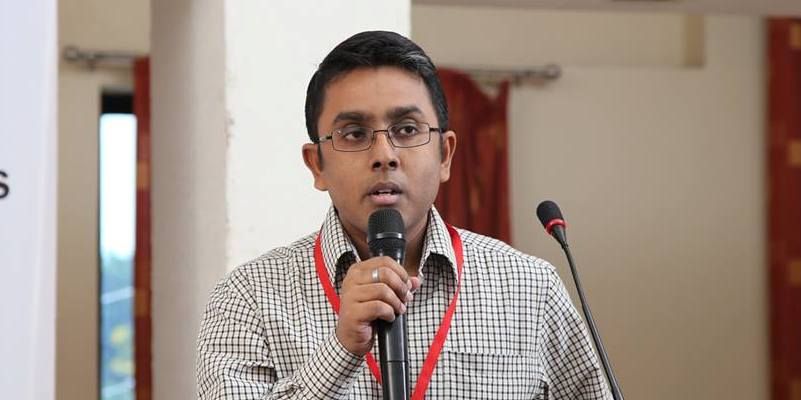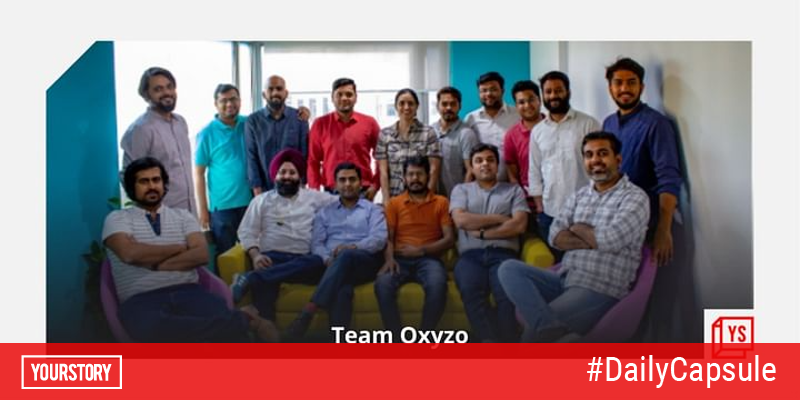'India has the potential to become the world’s leading food Supplier': Avishek Gupta,Investment Manager,Caspian
“Sustainable growth of food and agribusinesses in India is a primary need for the future. India has the second largest arable land in the world and is blessed with diverse agro-climatic zones. If leveraged correctly, our country can address all concerns around domestic food security and also become a leading supplier of food to the rest of the world.”

With these words Avishek Gupta, Investment Manager at Caspian Impact Investment Adviser, starts his conversation with SocialStory to discuss about recent trends in the Food & FAgriculture sector and how his group is approaching it.
How do you feel about the F&A industry in India?What are the main challenges?
“The F&A industry has a great but untapped potential. Absence of scale efficiencies, due to the small land holdings, poor rural infrastructure, and high level of political interference has historically led to a shortage of growth capital in the sector and lack of interest of private entrepreneurs. Because of these natural and human designed issues, the Indian agriculture supply chain operates at sub-optimal levels.
Yet, quality is being seen as an opportunity by policy makers and entrepreneurs alike. It is recognised that there are substantial chances to achieve higher productivity, better value addition and waste reduction. These value levers present exceptionally high growth prospects for Food &Agribusinesses in the coming years.”
Is it under- or over-regulated? Is there a fair and free market in F&A?
“This can take hours to discuss. India has a host of rules and laws around ownership, storage and sale of agri produce. It is not always free and fair. More often than not, well intentioned initiatives like the APMC Act [Agricultural produce market committee Act, which compels farmers to sell their produce through auction] have been wrongly used to exploit farmers. The policymakers have to be cautious given the fact that it is mostly the small and marginal farmers who are earning livelihood from agriculture.
It is precisely for these issues and challenges, however, that often entrepreneurs have ample opportunities to add value.”
You might also like: The role of government in achieving scale

From the organisations in F&A you’ ve assisted, can you give us some cases of how they dealt with issues related to government bureaucracy, logistics, laws and private competition?
Some time ago, one of our companies had a bank loan sanction pending for over a year because the government failed to release a subsidy previously granted. Our funding helped them meet part of the planned requirement that ithadn’t been able to access due to this inconvenience.
Moreover, in some cases our exposure in the companies has provided credibility and helped them raise funding at crucial times when other sources of funding were not forthcoming.
Finally, we have also had instances where, due to specific laws, the companies had to undergo changes in the ownership and asset holding structures after we gave a loan. Understanding that such changes were crucial for the company, we have worked with it to the extent of diluting our security and seeking alternate forms of cover.”
Why do you think it’s so hard for Indian farmers to be as lucrative as farming in the West?
“There are three main issues to explain this: small landholding size, inadequate infrastructure (irrigation, storage, marketing) and poor access to risk management tools (market & weather information, insurance products).

What is needed to improve the F&A sector in India and what role is Caspian playing in this?
“For the necessary growth to happen in the F&A sector, a combination of private and public initiatives will have to succeed. Lack of access to capital, which was a critical gap for many years has slowly started being addressed by a number of specialised capital providers. We hope to play a key role in ensuring the success of the private initiatives.
At Caspian, we offer financial assistance and access to our network of experienced practitioners, advisors and investors in the sector. We try to do our best by structuring the loans in a way that is best suited to the unique needs of the business.
In addition, we have partnerships with the likes of the Rabobank Group and ProCIF. The Rabobank Group helps by providing financial guarantees to promising players with weak credit and enables them to borrow. In some cases, they also help allowing financing lines for international transactions. The Rabobank Group also supports the Caspian team in building knowledge and understanding of the F&A sector by sharing the knowledge that they have gained across various markets in the world. Pro-CIF has agreed to provide financial support for capacity building of producer owned organizations that Caspian works with.”
Tell us about your portfolio
“Our current portfolio has nine companies from the F&A supply chain. Two out of the nine are Producer Owned Organisations. Between the nine companies, we have covered supply chains like cotton, milk, fruits & vegetables and cereals & spices.
At Caspian we broadly look for companies that:
- a) produce, process and sell F&A commodities/products or
- b) enable the help food & agribusiness supply chain companies perform efficiently.”
Where do you see these organisations most struggle?
“Access to finance is one problem which we are contributing to solve. The other is market linkages, but many have managed to find innovative means of reaching new types of customers, which at this scale is a very good achievement. Finally, scaling up continues to be an area of challenge. However, the organisations we work with have managed to do a good job in terms of establishing a strong sourcing network.”

Do you lean towards organic agriculture? Why?
“Yes, we do. We lend to businesses that adopt environmentally sound, economically profitable, ethically sound and socially responsible practices. Organic agriculture is one way of ensuring environmental sustainability and is of great interest to us.
However, it is important to note that while we favour organic farming based business models, we do not ignore the non-organic businesses if they follow suitable practices even without officially being certified organic. In our current portfolio, two of our companies are exclusively into the production and sale of organic produce.”
Read more about Organic Farming: I Say Organic, Carmel Organic

image credit: Caspian.in
What should an enterprise working in this sector ensure to be successful?
“It goes without saying that a solid understanding of the supply chain is fundamental. In terms of what makes them lucrative, our experience has shown that the most successful companies are those who have built solid sourcing channels and have used technology either in processing or in sourcing.
Another very important aspect is focussing on selling value-added products instead of commodity products.Value addition could be in terms of place (where a customer wants), time (when a customer wants) and form (how a customer wants). Adoption of innovation in processing technologies or having strong well-coordinated relationships with supply chain actors enables such value addition. Those who build their brand identity on this type of value addition are virtually always the most successful ones.
Finally, I want to point out that establishing strong relationships with the farmer community is crucial in ensuring business success. This is a basic principle of social entrepreneurship, where the economic and social sides go hand in hand and the one could not exist without the other.”







